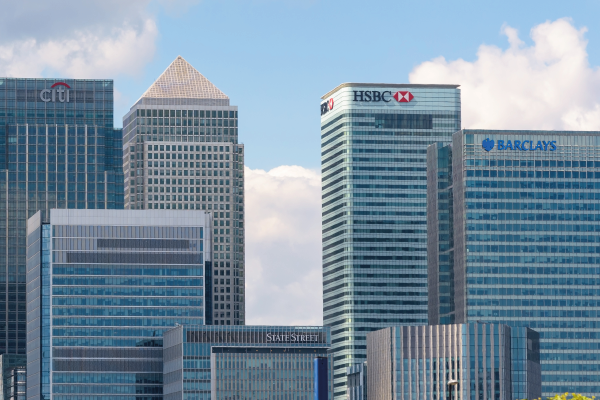Lloyds and the other UK banks investors should be buying
23rd June 2021 13:57
by Graeme Evans from interactive investor
Five years after the Brexit vote, lenders are being overlooked despite being well placed for the post-pandemic recovery.

Five years on from the Brexit vote, lenders including Lloyds Banking Group (LSE:LLOY) are still being overlooked after a leading analyst highlighted a big valuation gap to European peers.
UBS's Jason Napier reiterated his ‘buy’ recommendations for Barclays (LSE:BARC), and Virgin Money UK (LSE:VMUK) as well as Lloyds after arguing that UK domestic banks are well placed as the economy recovers.
His research note, published on the fifth anniversary of Britain's EU referendum, pointed out that UK lenders still trade at a 14% discount to the European banking sector, which itself is priced 42% below the wider continental market.
Lloyds shares were today half a penny higher at 47.3p, but long-suffering retail investors won't need reminding that they were 72p on the morning of the Brexit vote.
They slid as far as 51p the next day and haven't been seen above this level since the start of the pandemic in February 2020, with a perfect storm of Brexit uncertainty and Covid-19 depressing demand despite the turnaround efforts of former boss Antonio Horta-Osorio.
- UK banks: material risks and recovery value
- Chart of the week: are ailing UK banks poised to rebound?
- UK banks sector gets further boost
There was some cheer today when Credit Suisse upped its price target to 60p, while UBS's Napier kept his rating at 51p. His 200p valuation on Barclays compares with 173.1p today, while the Virgin Money estimate of 225p is up from 200p in the FTSE 250 index today.
The UK domestic banks overall are valued at 8.1 times 2022 earnings per share, compared with UK international banks HSBC Holdings (LSE:HSBA) and Standard Chartered (LSE:STAN) on 9.7x and European banks at 9.4x.
One factor making it harder for investors to determine valuations in the sector has been the way government support schemes continue to mask the extent of stress in loan portfolios.
For Napier, a close look at higher frequency credit quality data suggests no major deterioration.
Investors are also worried how higher interest rates might drive up future loan defaults, with banks among the sectors under pressure last week after the US Federal Reserve's guidance pointed to rising borrowing costs in 2023.
Overall, however, higher rates should be a good thing for bank earnings after several years of wafer-thin margins. On this point, Napier thinks it's encouraging that the Bank of England will be considering the tapering of quantitative easing and hiking of interest rates within the investing horizon.
In addition, the Prudential Regulation Authority is next month poised to hand back control for excess capital returns to bank boards after introducing curbs in the wake of Covid-19.
- The ii Family Money Show with Gabby Logan: watch the Richard Curtis interview here
- Subscribe to the ii YouTube channel and catch all our latest interviews and video content
Other points highlighted by Napier include the fact that UK domestic banks hold as much excess capital as European counterparts, as well as their high levels of provisions for bad debts.
One slight negative is that mortgage spreads fell this month at a time when the property market is seeing particularly strong growth, with home loan volumes up 34% year-on-year.
However, increased consumer spending and the recovery in credit card balances and payment fees should produce a decent recovery and growth potential in the coming year or two, particularly for Barclays and Lloyds.
Napier said: “We see UK domestic banks - with Barclays and Virgin our current top picks - as attractive in absolute and relative terms from a valuation standpoint, particularly once dividends and potential rate moves are considered.”
These articles are provided for information purposes only. Occasionally, an opinion about whether to buy or sell a specific investment may be provided by third parties. The content is not intended to be a personal recommendation to buy or sell any financial instrument or product, or to adopt any investment strategy as it is not provided based on an assessment of your investing knowledge and experience, your financial situation or your investment objectives. The value of your investments, and the income derived from them, may go down as well as up. You may not get back all the money that you invest. The investments referred to in this article may not be suitable for all investors, and if in doubt, an investor should seek advice from a qualified investment adviser.
Full performance can be found on the company or index summary page on the interactive investor website. Simply click on the company's or index name highlighted in the article.